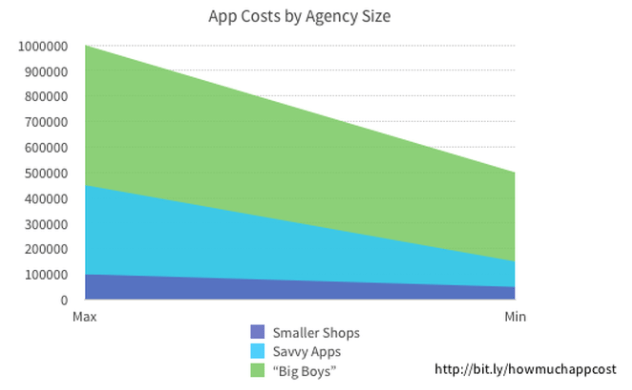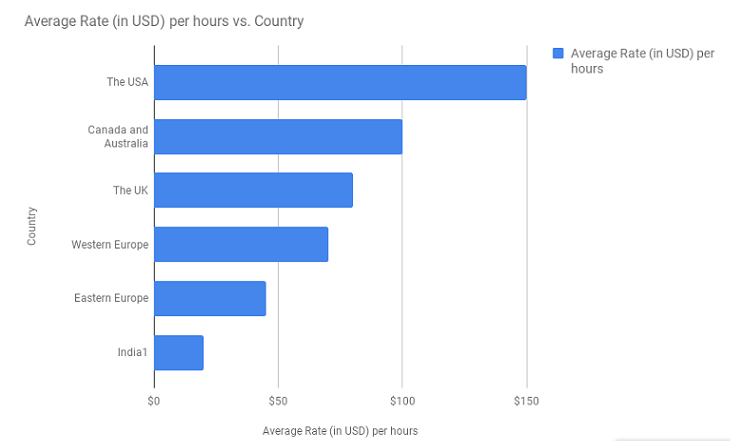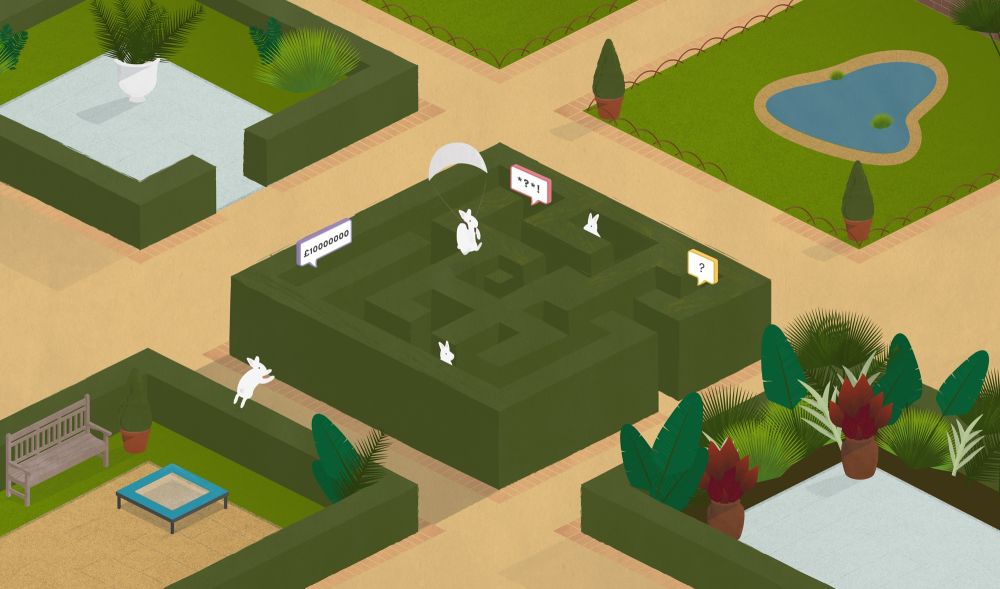‘How much does an app cost to build?’ is probably the question we’re asked most frequently. Unfortunately, there is no definitive price without knowing a ton of factors about the app, that’s a bit of a non-answer, I know, but here are some things to consider when thinking about getting a quote.
Cost is usually dependant on features
Obvious stuff first: cost is mainly based on the complexity and amount of features. For example, if you have an app that needs to track users, requires geolocation, user accounts, uses the device’s camera and has push notifications, then it will cost more than an app that allows you to make notes. Simply because a more complex app will take more time to design and build.
But, there are other factors to consider too, including:
- The app’s visual design
- User interaction design
- Interaction prototyping
- Architecture documentation
- API development
- SVG animations
- Security concerns
- Testing
- Hosting
- Iterations post launch
- User experience feedback
- Ongoing support
More complex apps will require an API (application programming interface) to manage the back end data of the app making them significantly more expensive than standalone apps. The more complex the app, the more bugs are likely to spring up post-launch, so the associated support will be higher too. The more users, the more data storage that's required, resulting in more server space, and so on.
Basically, more complexity = more £££
How quickly do you need the app?
Another question we get asked a lot is how long will 𝓧 take to launch. Again, the answer to this is dependant on the requirements of the project. If a client needs something lightning quick, it usually means that we have to prioritize their work over others. We do everything in our power to meet expectations on deadlines, but this results in pushing the cost of the project up because we have to work overtime to meet the launch date. If we can schedule the project in and around our current workload it may have a longer lead-time, but the cost will be reduced in comparison.
Minimal Viable Product vs Commercial Launch
We work with a lot of startups who are building tech to test an idea or an audience. More often than not they’re pre-seed funding, which means costs are being paid by their own initiatives. Getting the easiest, most cost-effective version of a product live is a priority because it allows them to test and adjust their principle before sinking a lot of cash into the concept. In these scenarios, apps can be put together and launched with the most cost-effective solution in mind. This allows the entrepreneur(s) to learn from the product and iterate in a more agile way than if they built the full polished app on presumptions alone.
On the other hand, we also service businesses that have a clear and defined vision for what they want their app to be, these are usually SME’s or companies with a larger reach. They usually have an audience and have identified a need, so it’s designed and built with longevity in mind and is very refined, which has longer lead-times and higher associated costs.
Who do you want to build your app?
Okay, so you’ve identified your features, you know your rough timescales and you know if you want an MVP or a full commercial product. Who’s going to build it?
One of if not the most important decisions of building an app is who you choose to partner with to design, build, launch and provide the ongoing support of your product. As they will be held responsible for the quality of the build and need to be the right fit for your needs. Finding a company with the technical know-how, proven track record and someone you can 100% rely upon to build your dream tech is no easy task.
Something we encourage our prospective clients to do is to identify if our ethos, values and mission statements match their expectations. We’re fully confident in our technical know-how and have worked with some amazing clients to back up our gusto. So for us, it comes down to the fit of values, personalities, and ethos.
Consider the type of development team you want/require.
The cost of an app will also vary between the type of developers you ask for a quote. Freelancers will likely be the most cost-effective, but there’s a huge skillset needed to both design and develop an app, even in its simplest form, probably best suited to basic MVPs.
UK agencies are likely the most cost-effective for MVP’s and small to medium app builds. The median hourly rate of £75 per hour, makes agencies in the UK (on avarage) half the cost of agencies in the US.
For larger, enterprise-grade development then the ‘big boys’ might be more appropriate as they focus on clients spending £300,000 to £1,000,000 on builds.

Rates also vary depending on location
Rates will also vary dependant on the type of developers and where they're based. For example, an offshore development team in India might be the same cost as a freelance developer in the UK and a development team in the UK might cost the same as a freelance developer in the US, there are no specific rules to the pricing of app builds. What you need to consider is who’s the right fit for you.

Average rates in different locations.
The build of the app is only part of the overall cost
The lifetime cost of an app is much more expensive than just the build cost, some studies suggest that the initial app build only accounts for 35% of a true two-year cost, but that includes factors like staffing, sales, and marketing.
From a technical point of view, the associated costs post-launch can include services like hosting, maintenance, ongoing development and fees associated with App stores and payment methods. Although not likely to contribute to 65% of overall costs, it’s important to understand all the associated fees in full before committing to a build price.
In conclusion
This post only touches on some of the factors that should be considered when planning to build an app. there’s always so much to consider with any big purchase, especially one as important as this.
In general, if you’re looking to build an app, then a realistic budget should be anywhere between £5,000 to £20,000 for an MVP and £10,000 to ~ £150,000 for a polished commercial app (dependant on features, who’s building it and where), without accounting for retainer fees, marketing, hosting and so on.
A quick recap:
- Price is largely based on the amount and complexity of features.
- Prices fluctuate depending on timescales.
- Prices fluctuate dependent on the type of project (MVP or otherwise).
- Apps can be built on a budget or to test an audience, but they cost more than apps in the App Store.
- Prices can vary massively on the type of development team you require.
- Prices fluctuate according to geographical location.
- Initial build costs are only an element of the overall cost.
- The most important thing is finding a team that matches your values, ambitions and can support your larger vision.
Identifying how much apps cost to build is tricky, so much so it's the main reasons we built our quick quote tool, to demystify (totally a word) the complex process of pricing an app.
If you’re interested in getting a free, no obligation 60-second quote for your app then head over to our quote page. If you have any questions I’m more than happy to point you in the right direction (even if that direction isn’t Big Lemon).
Happy (tech team) hunting 🚀 🤓 🤘




